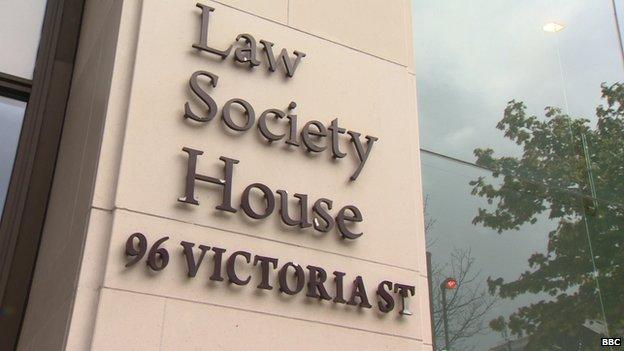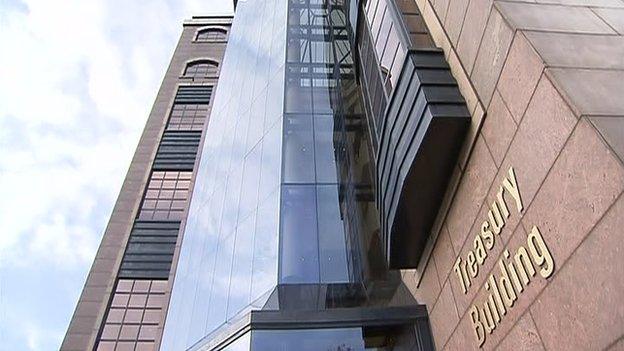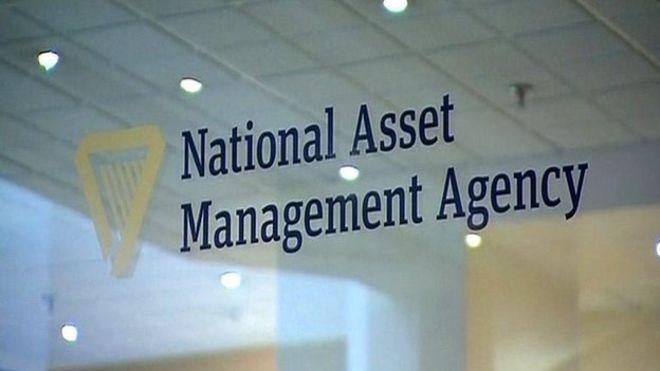Nama deal: Law Society says it cannot give 'substantive evidence' to Stormont inquiry
- Published

The Law Society has been investigating Ian Coulter's role in the Nama loan portfolio sale
The Law Society has said it cannot give "substantive evidence" to an inquiry into the National Asset Management Agency's (Nama) £1bn sale of its Northern Ireland loan portfolio.
The society has been investigating the role of solicitor Ian Coulter in the sale and his subsequent resignation as managing partner of law firm Tughans.
The Stormont Finance Committee inquiry wanted to know more.
The society said it was legally constrained regarding many questions.
Events surrounding the loan sale are now being investigated by the National Crime Agency (NCA).
The society president Arleen Elliott told the committee she had spoken to the deputy senior investigating officer at the NCA who had reiterated that she should not discuss its investigation.
She was able to answer some general queries on the operation of the society and regulatory matters but to many questions she said she could not answer or could not comment.
Society member James Cooper said he was confident that its role would be "vindicated" when the process was concluded.
Committee member Máirtín Ó Muilleoir said it was getting "a bit silly" with the NCA ringing witnesses and "telling them not to co-operate".

Ian Coulter left Tughans after the firm discovered he had diverted cash into an account in his name
In July, Mick Wallace, an independent politician in the Republic of Ireland, told the Irish parliament that a Northern Ireland politician was in line to benefit from the Nama deal.
He also claimed that Tughans was to facilitate a £7m payment.
Mr Wallace produced no evidence of political involvement.
Tughans confirmed it had received fees as part of the deal and that its former managing partner Ian Coulter moved some of the money to an Isle of Man account.
The money was later moved back and Mr Coulter subsequently left the firm.
The Law Society told a Stormont committee it could not give "substantive evidence" to its inquiry
He is still in dispute with his former partners about the precise version of events concerning the money.
Both Tughans and Mr Coulter have said no politician was to benefit, and Mr Coulter said the Isle of Man transfer was for a legitimate commercial reason.
- Published4 April 2014

- Published24 September 2015
